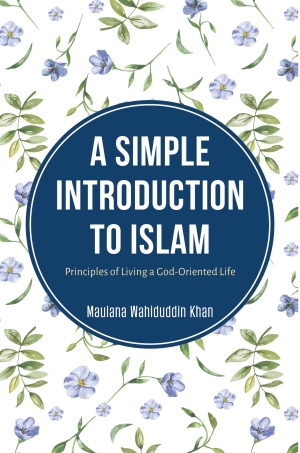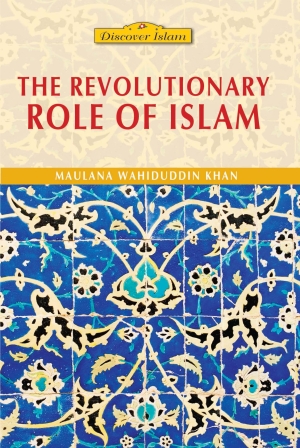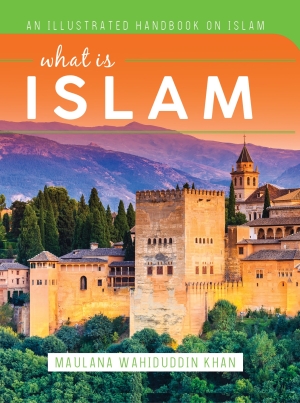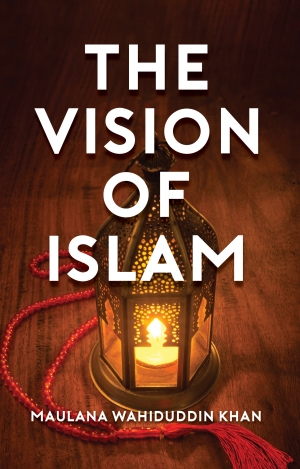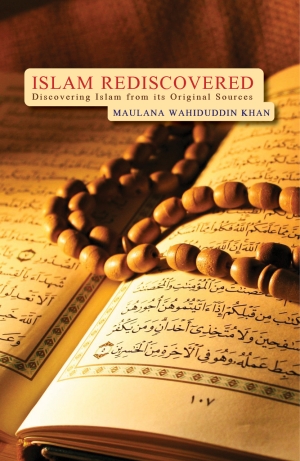The literal meaning of Islam is submission, that is, submission to God’s will. Submission is the name of that natural response from a person to God, the response expressed by human beings after they realise God. With this submission, life has developed, which is called religious life.
What is the realisation of God? The realisation of God is the realisation of that Being who has created man, who has granted man a personality that is unique throughout the vast universe, Who has created the planet earth for man and who has established a unique arrangement for man’s survival which is called the life support system. A person’s quest does not stop here but instead becomes a part of his life in the form of a process of discovery. Now, he discovers his relationship with God. He grasps the reality that he is not free but is under the command of God. He realises that the purpose of creating a human being in this world is to allow him to be the most superior of the creatures so that he may be credited with being one of those remarkable beings who bound himself to live a principled life despite having no compulsion to do so.
Islam is a religion of peace. It does not sanction violence. ‘Islam’ (from the Arabic silm) means ‘peace’. One of the attributes of God mentioned in the Quran (59:23) is As-Salam, which means ‘peace and security.’ According to a tradition of the Prophet, ‘Peace is Islam’ (Sahih, Al-Bukhari, Hadith No. 28). In other words, peace is a prerequisite of Islam. It describes reconciliation as the best policy (4:128) and states that God abhors any disturbance of peace (2:205). The Quran (5:16) likens divine guidance to the paths of peace. Paradise, the ideal human abode, is called the ‘Home of Peace’ (10:25).
Featured Articles
Featured Videos
Sub Themes
FAQs
In the present world, every human being is free. God has not set any constraints upon a person. But this freedom is for the purpose of putting him to the test rather than allowing him to lead an unrestrained life. This freedom does not mean that a person should lead his life permissively and then die one day. Its purpose is rather that a person should lead a life of principle of his own will and intention. Of his own will, he should bind himself to obeying high moral principles.
The purpose of creating a human being in this way is to give him the opportunity to be the most superior of the creatures so that he may be credited with being one of those special beings who bound himself to living a principled life, in spite of having no compulsion to do so.
All things in this world are subjected to God. The stars and planets in space revolve in their orbits totally under the command of God. The trees, the rivers, the mountains— all these things strictly follow the plan laid down for them by God. On a parallel with this, the animals follow the pattern determined for them by their instincts. They are totally governed by their instincts. In this world human beings, as an exception, have been granted the blessings of freedom and power.
This freedom offers two different paths to a person. One leads him to becoming arrogant and insolent, and leading an unrestricted life. This would mean his failing in his test paper.
On the other hand will be those who make right and proper use of their freedom. Although there is no compulsion for them to adhere to divine principles, they will be successful in their test. They will be given rewards by God, such as no other creature can merit. They will be held to be those of God’s servants, who have earned nearness to God. And they will live a life of comfort and happiness eternally.
Source: The Spirit of Islam
A prophet is one who has been selected to represent God on earth. When God chooses a human being as His messenger, His angel comes to him to inform him of this selection. In this way, he is left in no doubt that he is indeed God’s messenger. Afterwards, God sends him His teachings through the angel so that he may inform all human beings of God’s will. The prophet is an intermediary between God and man. He takes from God His message and conveys it to human beings.
God has bestowed human beings with reason but, through reason alone, an individual cannot understand the deeper realities of the present life. So far as God and the world Hereafter are concerned, this is totally related to the invisible world and as such, these things are beyond human reason and understanding. What the prophet does is fulfil this need of every individual. The Prophet informs a person of the realities of life, and of the world Hereafter. In this way, he enables people to plan their life in the full light of divine knowledge.
From the time that people inhabited this world, the prophets started arriving in every age. They told humans of God’s will but, there are no authentic records of the teachings of the prophets of ancient times. The later circumstances failed to authenticate their personalities as factually historical and their books also suffered the same fate.
Finally, God chose the Prophet Muhammad as His Messenger. He was born at a time when world history had begun to be put on record. Subsequently, with the invention of the printing press, he became widely acknowledged as a historically established figure, and the Book divinely revealed to him, was preserved for all eternity. Ultimately, there was no possibility that any changes could be made in this divine book he had brought to the world. The Prophet Muhammad was the final messenger to humanity. No prophet will come after him.
Source: The Spirit of Islam
Alms is a fixed amount which a person who is materially well-endowed has to give from his wealth at the end of the year. In this way, he purifies his possessions. By giving a part of his wealth in the way of God, he legitimizes the use of the rest for his own purposes.
The setting aside of a fixed amount from his earnings as alms is a practical demonstration or acknowledgement of the fact that the real giver is God. When God is the giver, His servant is obliged to spend from his wealth in the cause of God.
The law of almsgiving prescribes the taking of wealth from the wealthy and giving it to the poor. This, in effect, is a redistribution of wealth and, as such, is a way of reflecting the inequality in society. In this way, those who are wealthy are reminded of the fact that they are responsible for those who have received less in the division of wealth.
Almsgiving also buttresses morality. For one thing, one who gives alms avoids being miserly and having feelings of selfishness. It reinforces in him the spirit of giving, human friendliness and generosity. For another thing, the receiver of alms comes to regard others as his brothers and becomes their well-wisher, rather than feel jealous of them.
Since alms are given in the cause of God, that establishes almsgiving as one of the forms of worship. Apparently, it is given to human beings but, in reality, it links a person to God, creating a bond between him and his Creator. In spirit, giving in charity is a way of worship; in its external manifestation, it is an act of social service.
Source: The Spirit of Islam
Hajj, one of the pillars of Islam, is a form of worship. For those who have the resources to perform Hajj, it is obligatory for them to do so once in their life time. It is not mandatory for those who have neither the ability nor the resources to undertake this pilgrimage.
To perform Hajj, one has to leave one’s home and travel to Hijaz in Saudi Arabia. The pilgrim then goes to Makkah and does the circumambulation of the Kabah. After that, he runs between two hillocks, called Safa and Marwa. He next stops at Arafat, where he casts stones at Jamrat. He then sacrifices an animal. In this way, different rituals of worship are performed in the month of Zul Hijja. All of this is what constitutes Hajj.
This Hajj is a symbolic form of surrendering oneself to one’s Lord. Through these acts of worship the pilgrim pledges to surrender himself before God, so that his life revolves around God alone, and to signal that he is ready to perform all kinds of sacrifice for the sake of God.
During Hajj, the worshipper remembers the two pious men who built the Kabah, Prophet Ibrahim and Prophet Ismail. He sees the historical places associated with the Prophet Muhammad. He spends some of his time in this environment where the history of Islam initially took shape.
In this way, Hajj becomes a means of bringing a person closer to God and his prophets. It reminds one of the lives of people who were reputed for their virtue, thus creating a living relationship with the history of Islam.
Hajj, moreover unites God-worshippers from all over the world. It refreshes the reality in the mind of the believers that however much their races and nationalities may be different, they all believe in the same God and in the same Prophet: this is a great source of unity. They might be living in different lands but being worshippers of God, they are all as one. Hajj is basically a form of worship of God, but practically there are many other benefits associated with it. One of these is fostering of unity in all the believers.
Source: The Spirit of Islam





























